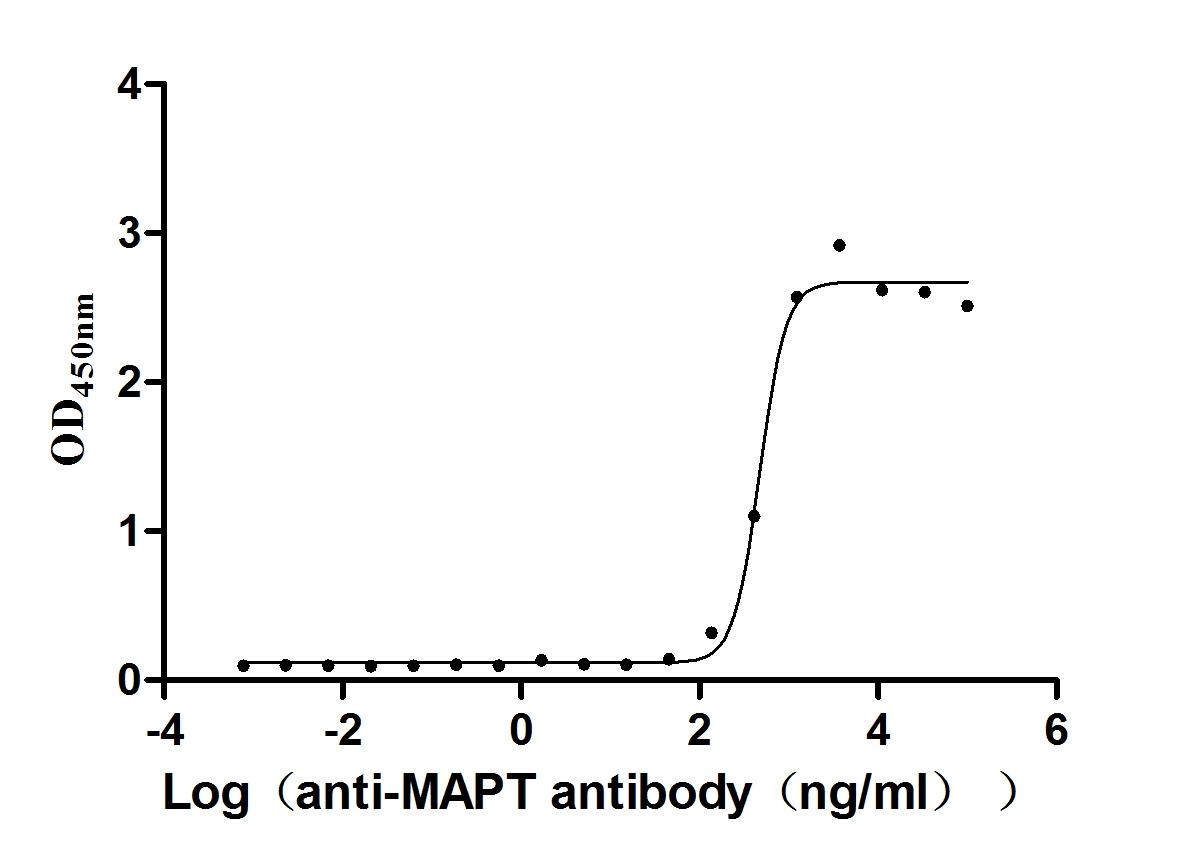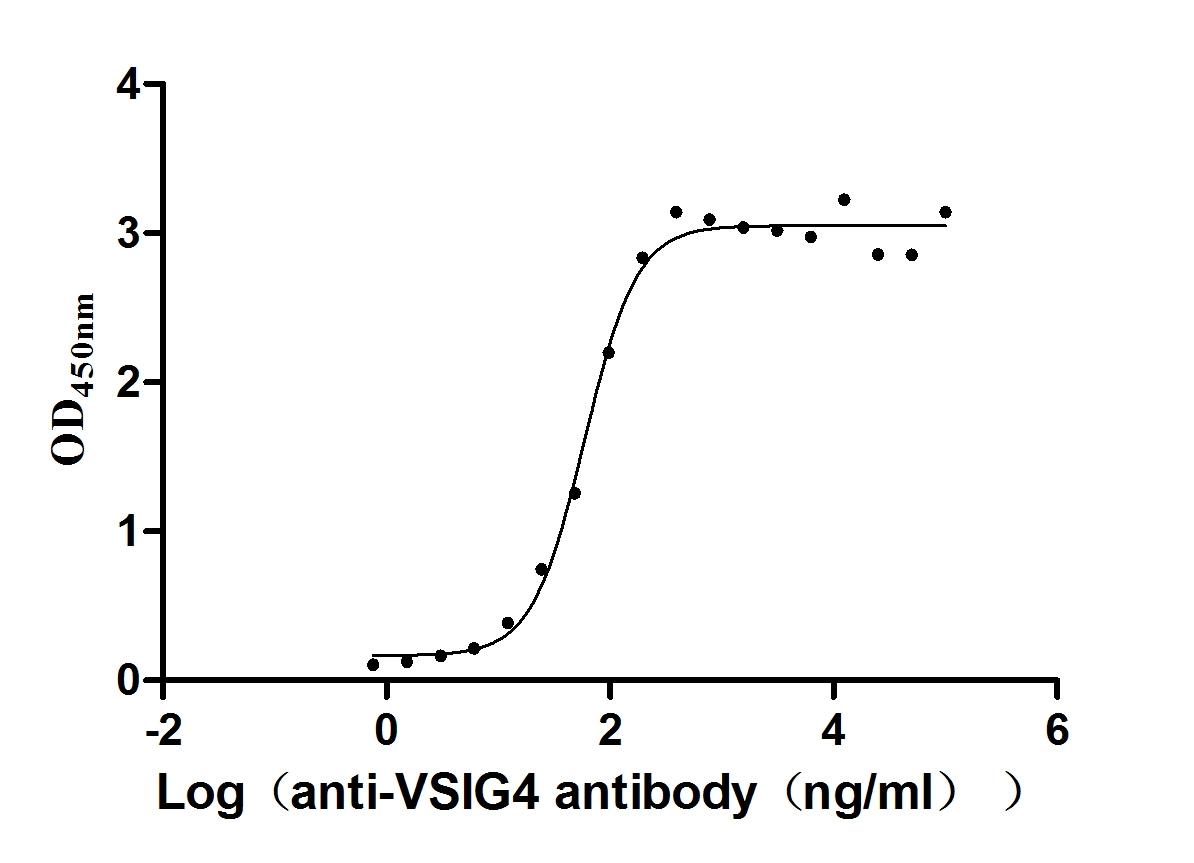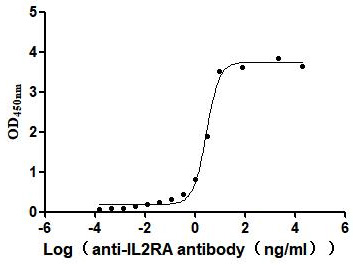Recombinant Human Arachidonate 15-lipoxygenase B (ALOX15B)
-
中文名稱(chēng):Recombinant Human Arachidonate 15-lipoxygenase B(ALOX15B),Yeast
-
貨號(hào):CSB-YP001622HU
-
規(guī)格:
-
來(lái)源:Yeast
-
其他:
-
中文名稱(chēng):Recombinant Human Arachidonate 15-lipoxygenase B(ALOX15B),Yeast
-
貨號(hào):CSB-EP001622HU
-
規(guī)格:
-
來(lái)源:E.coli
-
其他:
-
中文名稱(chēng):Recombinant Human Arachidonate 15-lipoxygenase B(ALOX15B),Yeast
-
貨號(hào):CSB-EP001622HU-B
-
規(guī)格:
-
來(lái)源:E.coli
-
共軛:Avi-tag Biotinylated
E. coli biotin ligase (BirA) is highly specific in covalently attaching biotin to the 15 amino acid AviTag peptide. This recombinant protein was biotinylated in vivo by AviTag-BirA technology, which method is BriA catalyzes amide linkage between the biotin and the specific lysine of the AviTag.
-
其他:
-
中文名稱(chēng):Recombinant Human Arachidonate 15-lipoxygenase B(ALOX15B),Yeast
-
貨號(hào):CSB-BP001622HU
-
規(guī)格:
-
來(lái)源:Baculovirus
-
其他:
-
中文名稱(chēng):Recombinant Human Arachidonate 15-lipoxygenase B(ALOX15B),Yeast
-
貨號(hào):CSB-MP001622HU
-
規(guī)格:
-
來(lái)源:Mammalian cell
-
其他:
產(chǎn)品詳情
-
純度:>85% (SDS-PAGE)
-
基因名:ALOX15B
-
Uniprot No.:
-
別名:15 Lipoxygenase 2; 15 LO 2; 15 LOX 2; 15-lipoxygenase 2; 15-LOX-2; 15-LOX-B; Alox15b; Arachidonate 15 lipoxygenase second type; Arachidonate 15 lipoxygenase type II; Arachidonate 15-lipoxygenase B; Arachidonate 15-lipoxygenase type II; LX15B_HUMAN
-
種屬:Homo sapiens (Human)
-
蛋白長(zhǎng)度:Full length protein
-
表達(dá)區(qū)域:1-676
-
氨基酸序列MAEFRVRVST GEAFGAGTWD KVSVSIVGTR GESPPLPLDN LGKEFTAGAE EDFQVTLPED VGRVLLLRVH KAPPVLPLLG PLAPDAWFCR WFQLTPPRGG HLLFPCYQWL EGAGTLVLQE GTAKVSWADH HPVLQQQRQE ELQARQEMYQ WKAYNPGWPH CLDEKTVEDL ELNIKYSTAK NANFYLQAGS AFAEMKIKGL LDRKGLWRSL NEMKRIFNFR RTPAAEHAFE HWQEDAFFAS QFLNGLNPVL IRRCHYLPKN FPVTDAMVAS VLGPGTSLQA ELEKGSLFLV DHGILSGIQT NVINGKPQFS AAPMTLLYQS PGCGPLLPLA IQLSQTPGPN SPIFLPTDDK WDWLLAKTWV RNAEFSFHEA LTHLLHSHLL PEVFTLATLR QLPHCHPLFK LLIPHTRYTL HINTLARELL IVPGQVVDRS TGIGIEGFSE LIQRNMKQLN YSLLCLPEDI RTRGVEDIPG YYYRDDGMQI WGAVERFVSE IIGIYYPSDE SVQDDRELQA WVREIFSKGF LNQESSGIPS SLETREALVQ YVTMVIFTCS AKHAAVSAGQ FDSCAWMPNL PPSMQLPPPT SKGLATCEGF IATLPPVNAT CDVILALWLL SKEPGDQRPL GTYPDEHFTE EAPRRSIATF QSRLAQISRG IQERNQGLVL PYTYLDPPLI ENSVSI
-
蛋白標(biāo)簽:Tag?type?will?be?determined?during?the?manufacturing?process.
The tag type will be determined during production process. If you have specified tag type, please tell us and we will develop the specified tag preferentially. -
產(chǎn)品提供形式:Lyophilized powder
Note: We will preferentially ship the format that we have in stock, however, if you have any special requirement for the format, please remark your requirement when placing the order, we will prepare according to your demand. -
復(fù)溶:We recommend that this vial be briefly centrifuged prior to opening to bring the contents to the bottom. Please reconstitute protein in deionized sterile water to a concentration of 0.1-1.0 mg/mL.We recommend to add 5-50% of glycerol (final concentration) and aliquot for long-term storage at -20℃/-80℃. Our default final concentration of glycerol is 50%. Customers could use it as reference.
-
儲(chǔ)存條件:Store at -20°C/-80°C upon receipt, aliquoting is necessary for mutiple use. Avoid repeated freeze-thaw cycles.
-
保質(zhì)期:The shelf life is related to many factors, storage state, buffer ingredients, storage temperature and the stability of the protein itself.
Generally, the shelf life of liquid form is 6 months at -20°C/-80°C. The shelf life of lyophilized form is 12 months at -20°C/-80°C. -
貨期:Delivery time may differ from different purchasing way or location, please kindly consult your local distributors for specific delivery time.Note: All of our proteins are default shipped with normal blue ice packs, if you request to ship with dry ice, please communicate with us in advance and extra fees will be charged.
-
注意事項(xiàng):Repeated freezing and thawing is not recommended. Store working aliquots at 4°C for up to one week.
-
Datasheet :Please contact us to get it.
相關(guān)產(chǎn)品
靶點(diǎn)詳情
-
功能:Non-heme iron-containing dioxygenase that catalyzes the stereo-specific peroxidation of free and esterified polyunsaturated fatty acids (PUFAs) generating a spectrum of bioactive lipid mediators (Probable). It inserts peroxyl groups at C15 of arachidonate ((5Z,8Z,11Z,14Z)-eicosatetraenoate) producing (15S)-hydroperoxyeicosatetraenoate/(15S)-HPETE (Probable). Also peroxidizes linoleate ((9Z,12Z)-octadecadienoate) to 13-hydroperoxyoctadecadienoate/13-HPODE (Probable). Oxygenates arachidonyl derivatives such as 2-arachidonoylglycerol (2-AG) leading to the production and extracellular release of 15-hydroxyeicosatetraenoyl glycerol (15-HETE-G) that acts as a peroxisome proliferator-activated receptor alpha agonist. Has the ability to efficiently class-switch ALOX5 pro-inflammatory mediators into anti-inflammatory intermediates. Participates in the sequential oxidations of DHA ((4Z,7Z,10Z,13Z,16Z,19Z)-docosahexaenoate) to generate specialized pro-resolving mediators (SPMs) resolvin D5 ((7S,17S)-diHPDHA), which can actively downregulate the immune response and have anti-aggregation properties with platelets. In addition to free PUFAs hydrolyzed from phospholipids, it directly oxidizes PUFAs esterified to membrane-bound phospholipids. Has no detectable 8S-lipoxygenase activity on arachidonate but reacts with (8S)-HPETE to produce (8S,15S)-diHPETE (Probable). May regulate progression through the cell cycle and cell proliferation. May also regulate cytokine secretion by macrophages and therefore play a role in the immune response. May also regulate macrophage differentiation into proatherogenic foam cells.; Does not convert arachidonic acid to 15S-hydroperoxyeicosatetraenoic acid/(15S)-HPETE.
-
基因功能參考文獻(xiàn):
- Ca(2+) binding induces major structural changes in the 15-lipoxygenase-2 PLAT domain. PMID: 28809482
- 15-LOX-2 is distributed at the plasma membrane when cells are stimulated by the addition Ca(2+) ionophore and that cellular localization is dependent upon the presence of a putative membrane insertion loop. PMID: 27435673
- these results demonstrate the strict regiospecificity of h15-LOX-2 that circumscribes its role in transcellular synthesis. PMID: 27145229
- This study combined molecular dynamics simulations, QM/MM calculations, and umbrella sampling free energy simulations to study the hydrogen atom abstraction from arachidonic acid catalyzed by the human enzyme 15-lipoxygenase-2. PMID: 26918937
- The ALOX15B gene may be associated with coronary artery disease. PMID: 24373925
- Hpoxia-induced pulmonary vascular remodeling is associated with increased levels of 15-LO-2. PMID: 25895668
- ALOX15 rs11568070 polymorphisms did not discriminate for the disease or its severity. PMID: 24975552
- 15-LOX2 expression inhibits Myc-induced prostate cancer development, such that in the 3-month- and 6-month-old double transgenic mice, there is a significant reduction in prostate intraneoplasia. PMID: 24732589
- activated ALOX15B in macrophages may play a role in the induction of atherothrombotic events by increasing platelet aggregation and thrombin generation PMID: 24533104
- Positive feedback-loop of TERT and 15-lipoxygenase-2 promotes pulmonary hypertension. PMID: 24376652
- Presented is the crystal structure of 15-LOX-2 in complex with an inhibitor that appears to bind as a substrate mimic. 15-LOX-2 contains a long loop, composed of hydrophobic amino acids, which projects from the amino-terminal membrane-binding domain. PMID: 24497644
- ALOX15B is the mainly expressed 12/15-lipoxygenase in human macrophages and that its expression is induced by IL-4, LPS and hypoxia. PMID: 22980500
- The C2-domain is not essential for catalytic activity and does hardly impact reaction specificity. PMID: 21951814
- Tumor-associated macrophages isolated from RCC tumors had a high 15-LOX2 expression and secreted substantial amounts of 15(S)-hydroxyeicosatetraenoic acid. PMID: 21900394
- In summary, we observed associations between high ALOX15B expression in carotid lesions and a history of cerebrovascular symptoms. PMID: 21316676
- Results from this study suggest a 125-bp region (-157 to -33) is critical for the 15-LOX-2 promoter activity in prostate epithelial cells and cancer cells PMID: 20428779
- a negative cell cycle regulator in normal prostate epithelial cells, but not present in prostatic neoplasms PMID: 11839751
- 15-LOX-2 expression is lost in esophageal cancers and the induction of 15-LOX-2 can inhibit cancer cell proliferation PMID: 12659684
- 15-LOX2 and its splice variants suppress prostate tumor development PMID: 12704195
- Sp1 and Sp3 proteins play a physiologically important role in positively and negatively regulating the 15-LOX2 gene expression, respectively. PMID: 15247906
- feedback mechanisms may contribute to the loss of 15-LOX-2 pathway components, which coincide with an increase in PPAR-gamma in many epithelial cancers PMID: 15799828
- Crosstalk mechanisms exist between the 15-LOX-2 gene and peroxisome proliferator-activated receptor gamma (PPARgamma) to counterbalance expression and help explain the inverse relationship of these genes in normal prostate versus prostate cancer cells. PMID: 16682954
- Loss of heterozygosity on 17p13 and down-regulation of ALOX15B can be used to discriminate adrenal cortex neoplasms from adrenocortical adenoma. PMID: 18156936
- 13-(S)-hydroxyoctadecadienoic acid (13-HODE) is docked to solvent-exposed histidines of a 15-hLOX-2 homology model and found to bind well with histidine627, suggesting a potential location for the allosteric site. PMID: 19645454
- Expression of 8S-LOX and 15S-LOX-2 suppresses CRD-BP/IMP-1 expression, resulting in inhibition of human prostate carcinoma PC-3 cell proliferation. PMID: 19661680
顯示更多
收起更多
-
亞細(xì)胞定位:[Isoform A]: Nucleus.; Cytoplasm, cytosol. Cell membrane. Cytoplasm, cytoskeleton. Membrane; Peripheral membrane protein. Cell junction, adherens junction. Cell junction, focal adhesion.
-
蛋白家族:Lipoxygenase family
-
組織特異性:Expressed in hair, prostate, lung, ovary, lymph node, spinal cord and cornea.
-
數(shù)據(jù)庫(kù)鏈接:
Most popular with customers
-
Recombinant Human CD226 antigen (CD226), partial (Active)
Express system: Mammalian cell
Species: Homo sapiens (Human)
-
Recombinant Human Poliovirus receptor (PVR) (I340M), partial (Active)
Express system: Mammalian cell
Species: Homo sapiens (Human)
-
Recombinant Mouse Microtubule-associated protein tau (Mapt) (Active)
Express system: Mammalian cell
Species: Mus musculus (Mouse)
-
Recombinant Human V-set and immunoglobulin domain-containing protein 4 (VSIG4), partial (Active)
Express system: Mammalian cell
Species: Homo sapiens (Human)
-
Recombinant Human Interleukin-2 receptor subunit alpha (IL2RA), partial (Active)
Express system: Mammalian cell
Species: Homo sapiens (Human)
-
Recombinant Rat Gastric inhibitory polypeptide receptor (Gipr), partial (Active)
Express system: Mammalian cell
Species: Rattus norvegicus (Rat)
-
Recombinant Macaca fascicularis Interleukin 1 receptor accessory protein(IL1RAP), partial (Active)
Express system: Mammalian cell
Species: Macaca fascicularis (Crab-eating macaque) (Cynomolgus monkey)
-
Recombinant Human C-C chemokine receptor type 5 (CCR5)-VLPs (Active)
Express system: Mammalian cell
Species: Homo sapiens (Human)



-AC1.jpg)
















